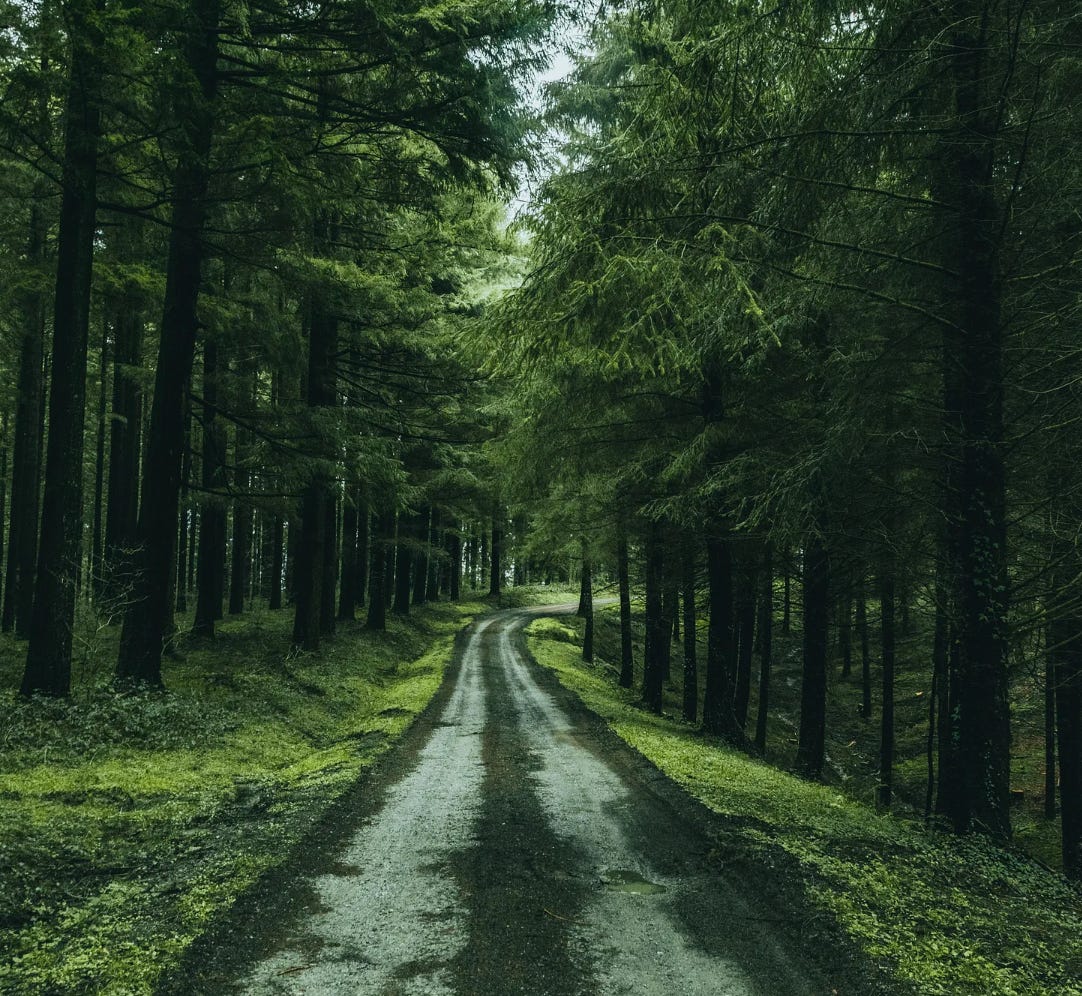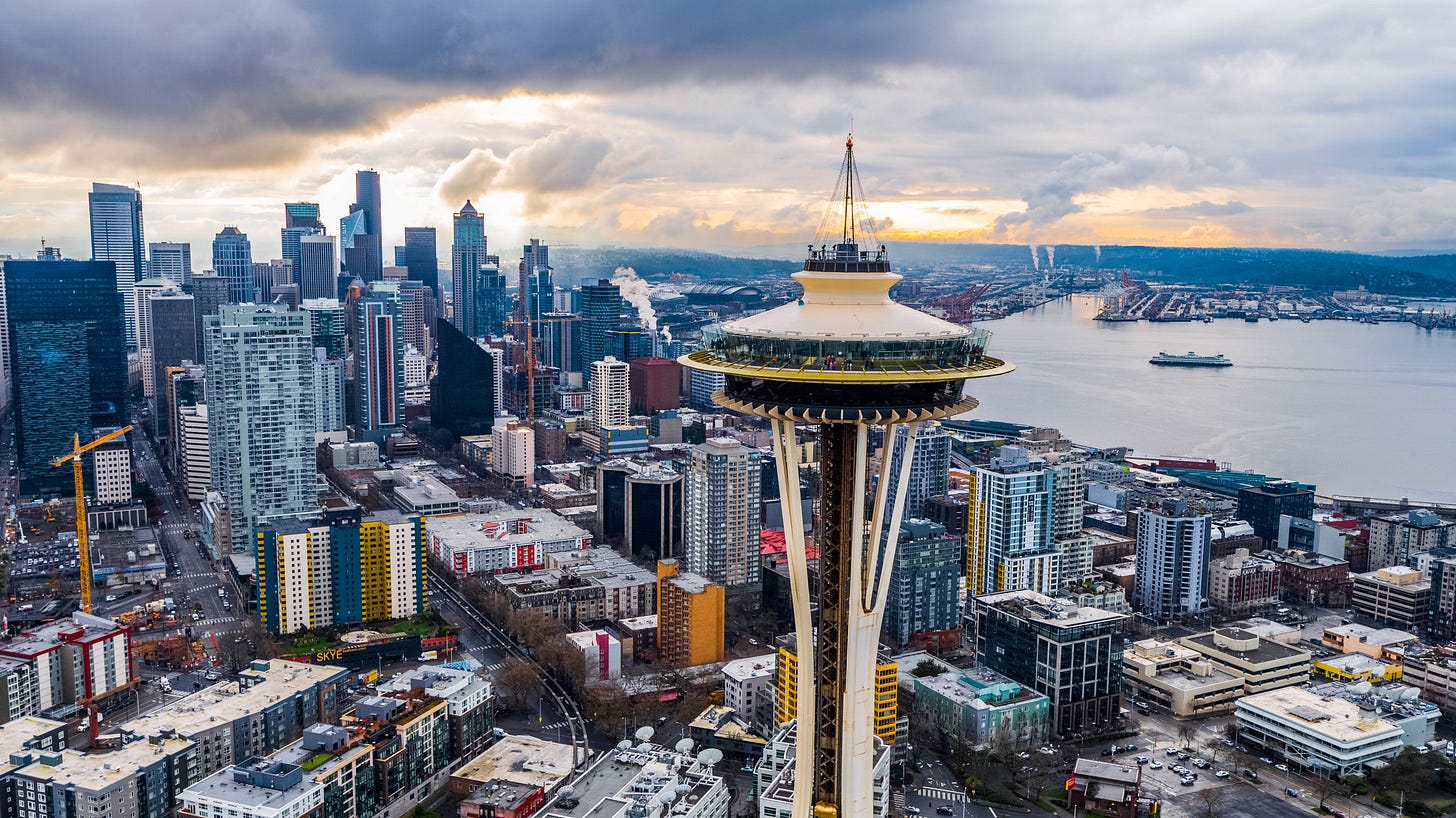CHAPTER 4: Timber Town
In his office at The Los Angeles Tribune, Chase Stanford contemplated the two freeways converging below his window. It was not noon yet and he’d received multiple angry phone calls and emails about the UCLA incident.
How could Grace let that crowd get out of control like that? he thought. How to salvage this? Pull her back from the situation or embed her in the conflict zone?
He sat down and reviewed online posts, including one forwarded by his wife Justine. It was entitled, “UCLA and The Trib felled by lumberjack”. She’d added a note to her husband: Seriously? What was Grace thinking?
Chase sighed and called Grace into his office. “Well,” he said wearily. “That was a disaster. Legal’s drafting an apology for UCLA and the panelists. Sign it, Grace.”
She blushed.
“You also need to go north to Washington State, to this town, Silvercreek.”
“Drop everything and fly up to the middle of nowhere?” she asked.
“Yes,” he said. “I believe you have the ability to salvage the situation, Grace, to turn it around with a feature piece, a few side pieces. Interview some loggers, tour a lumber mill. I’ll email you my thoughts and Travel’s expecting your call. That’s all,” he said as he stood and turned to study the freeways. Traffic backed up one side, flowed on the other, in a sort of twisted urban Yin-Yang.
People avoided her eyes as Grace returned to her desk. She heard whispers, felt the color rise in her face.
Ricki Denton walked by, shook her head. “Last night was brutal,” she said as she chose the cubicle next to Grace.
Hot tears welled up in Grace’s eyes, but she took a deep breath and composed herself in the mindless, repetitive tasks, marking spam, angrily stacking papers.
“Ouch! Shit! Friggin’ paper cut,” said Grace, pressing down on her right index finger. Ricki pulled a small first aid kit from her purse, handed it to Grace.
With a Band-Aid wrapped tightly around the digit, Grace sent emails requesting meetings to Seattle contacts and Virginia Anderson, the director of the Yellow Ribbon Alliance. She took a picture of the notes she’d made in the parking lot at UCLA and emailed it to Lauri Brown, one of The Tribune’s on-staff researchers. She ignored text messages from the other panelists, friends, and family.
A few hours later, Grace read over the apology drafted by the Legal Department. The secretary looks far too smug, she thought, as she reluctantly signed it.
Over the next few days, appointments were set and travel arrangements confirmed. Grace spent endless hours surfing the internet and The Tribune library for information on forestry and spotted owls, climate change and forest fires.
After a restless night’s sleep, a car delivered her to LAX for her crowded crack-of-dawn flight over a thousand miles north to Seattle.
<><><><>
The aroma of freshly-ground coffee beans and slap-you-awake espresso wafted through the Seattle-Tacoma terminal. A groggy and unsettled Grace Newman stood outside under an overhang. It was so cold she could see her breath.
Mike Tate of the Washington Resources Defense Council spotted Grace and parked his silver BMW in the loading zone. She was wearing a rose-colored wool hat and a long black gabardine coat. The tall brown boot on her left foot touched her suitcase; her Italian leather backpack with her computer was slung over her right shoulder.
She studied the thick band of corrugated paper wrapped around her cup of cappuccino. She stirred the foam slowly with a wooden stick and thought, Wood, pulp, paper. Wood, pulp, paper. As her body absorbed the calories and caffeine, her head slowly cleared.
Mike waved his umbrella. “Grace! Grace! Over here!” Grace looked up from her coffee and rolled her suitcase in the drizzle to the curb.
“You look wonderful, Grace,” Mike said. His tanned and lean look was developed over years of kayaking on Puget Sound and rock climbing. He gave her a quick hug and she felt his upper arms and back, rock hard under the softness of his deep blue vicuña wool sweater.
He smiled. His cool gray eyes were open and intelligent; his dark hair was cut fashionably thick on top. “Thanks for picking me up,” said Grace.
“My pleasure,” he said as he lifted her bag into the trunk. He held his umbrella over her until she was inside where she set her backpack down by her feet as he closed the door.
“Is this the new all electric, Mike?” she asked once he was behind the wheel.
“Yep. The i4. I’m absolutely lovin’ it,” he said, as he steered his BMW carefully out of the airport.
“It’s gorgeous,” she said. I’m in a $50,000 car, she thought. “Range?”
“A few hundred miles—perfect for around town.” He merged onto the freeway, heading north toward Lake Union. “I’m glad you’ve come to see what’s happening up here, Grace.”
“How many years have you been involved in timber, Mike?”
“Three long years now.” Mike shook his head. “Such a battle!”
“Making progress?” she asked.
“Yes and no,” said Mike. “Seattle overwhelmingly supports saving the forest. The big industry guys know business as usual is over—most are certified now—but the small-scale loggers remain a problem. They just don’t understand that if they cut all the trees, there won’t be any jobs.” He added, “A smaller, sustainable timber industry, coupled with ecotourism, is a better approach long term.”
“Sensible,” said Grace. “What do you see as the major conflicts to resolve?” she asked.
Mike detailed various lawsuits and timber sales under appeal as he steered his north on the I-5. When heavy traffic brought them to a stop, he reached behind the passenger seat and handed her an envelope. “Press kit,” he said. “Dr. Gordon, the Forest Service’s Regional Director, is expecting you.”
“Yes,” she said. “I got your email. We’re working on scheduling.”
“I sent you a Sequoia Club article. Might make a nice story—a logger’s wife making the transition to an eco-friendly and sustainable lifestyle harvesting mushrooms.”
“Can that support a family?”
“It’s decent money,” he said. “Maybe 20, 25 grand a year. It’s less than the average logger’s salary, of course—like everyone, they just want more—but lifestyles need to change.”
The Space Needle loomed like a UFO over homeless camps lining the route, hidden behind shrubs and chain link fences, under overpasses. L.A., San Fran, Portland, Seattle, Philly, New York, thought Grace. It’s everywhere.
“Timber industry reps contribute piles of cash to politicians,” said Mike. “Delivers wins every once in a while—but the loggers know they’re just delaying the inevitable: the Olympic Peninsula and everything green around it is going to be protected, a park. Beautiful. No more logging.” He turned into the port at Lake Union. “In the meantime,” he said, “we’ve got a lot of passion to keep us going plus tons of support for the cause.”
“What’s the Defense Council’s budget, Mike?” asked Grace.
“About $28 million,” he said.
“That’s gone up.”
“By about a 50% over five years,” he said. “Court battles, federal legislation, UN treaties—expensive battles, an expensive war.”
Mike parked his BMW at the curb. He turned and smiled kindly. “I admire you. Flying into the belly of the timber-beast. Look, Grace, Silvercreek is way out in the sticks. You’re welcome to the spare room at my place on Mercer Island. It’s close to where everything is happening—the universities, the scientists, the politics, the courts, the activists.”
“Thanks, I might take you up on that.”
They got out of the car and he lifted her bag to the curb. As she reached for it, he touched her arm gently. She saw real concern in his intelligent gray eyes.
“These Silvercreek people are most likely arsonists. They’re angry, dangerous,” he said. He paused, added, “I saw a video of what happened at UCLA.”
Grace blushed. “I appreciate your concern, but I’ll be fine,” she said as she gave him a quick hug and pivoted her suitcase. “Thank you again for the ride and all the help, Mike.”
He smiled. “Call me anytime, Grace,” he said, waving goodbye.
She thanked him and felt excitement mingled with fear as she walked down the pier to the floatplane emblazoned with BLUE ADVENTURE SEAPLANES across its hull.
<><><><>
The rumpled, white-haired pilot studied her. “Ms Newman? I’m Ron, your pilot. “All your luggage goes in the hold,” he said, taking her roller bag.
“Be careful,” she said as she handed over her backpack. “My computer’s in there.” He carefully stored her items in the hold of the Cessna 185. “Watch your step,” he said as he helped her into the cabin.
Grace turned and smiled at his other passengers, two young girls of about ten and twelve. They smiled shyly back. “My little sister’s kids,” explained Ron. “Back from visiting their Dad—he’s working at Microsoft in Seattle, but we’re all hoping he gets hired on again at the pulp mill in PA—Port Angeles—where my sister works.”
He fiddled with knobs and dials and said, “Pop on your headsets. Hello, hello, hello! This is Ron your pilot. Ya’all hear me?” Heads nodded. “Super! Well, here we go, into the wild blue yonder!”
The engine roiled, sputtered, then roared as the plane lifted off from Lake Union to the north and made a hard-left turn. The kids whooped with excitement while Grace’s stomach took a nervous flip.
The sprawling University of Washington campus, beyond the I-5 freeway bridge, appeared briefly on the right as the plane turned west by northwest, flying over a densely-packed urban street grid.
“Say goodbye to Seattle,” he said and the girls waved. “Bye, bye,” they said.
“We’re heading out over Ballard Locks,” said Ron. “Katie, Luisa, this is where the fresh water of tiny Lake Union and great big Lake Washington mixes with Puget Sound’s salt water, through Panama Canal-type ship locks.”
The plane banked over Shilshole Bay’s marina, over Puget Sound and its pulp mills. Gaining altitude, the whole face of the splendid Olympics was displayed beyond Seattle’s sprawl.
“To our left,” said Ron, “is the Olympic dome, cut by deep glacial valleys of rivers: Skokomish, Hamma Hamma, Duckabush, Dosewallips, Quilcene. They all empty into Hood Canal. To the north, that double peak—The Brothers—has a semi-permanent snowfield between peaks.”
It was lovely and clear. “We’re at 6,000 feet,” said Ron. “We can see all the way to Mount Washington, 6,289 feet high! That pyramid is Mount Jupiter—pretty majestic, with a recent snowfall. Over there, closer to us, you can see the long, jagged, tall ridge of Mount Constance, heavy with snow. That dark spot is where its steep vertical face just won’t hold any snow at all. And there is Mount Mystery and Little Mystery.”
The seaplane flew over the shimmering silver of Puget Sound. “Bainbridge Island below,” he said. “Mostly Seattle commuters, but Bloedel Reserve, built by timber dollars, is below, an absolutely magnificent garden, 140 acres. You should visit, Miss, while you’re here.”
A minute later, he said, “Below us is Agate Pass, a choke point, one of dozens throughout Puget Sound. Throws dangerous whirlpools and rip tides. Don’t go swimming there! And now we’re over the Kitsap Peninsula. See the drumlins? Left behind by the Vashon Stade of the Great Continental Ice Sheet, the glaciers that vanished about ten, twelve thousand years ago. They’ve been heavily logged, small towns filling in the cutovers.”
He smiled. “My family settled there after my daddy left logging for piloting. See my house, the one on the corner there?” The girls waved and threw kisses. Grace and the pilot laughed.
“Now we’re flying over the Hood Canal Floating Bridge,” he said. It was busy with vehicles.
On the foothills were patch cuts, more visible back into the heart of the Olympic mountain dome, few beyond the national park boundary. The high mountains were brown with dry meadows and sparse tree cover, snow. The tip of glacier-clad Mount Olympus—far, far away—was almost lost in the clutter and jumble of this geological madhouse.
“Girls! Science lesson!” said Ron. “Why is it so brown in one spot, so green in another?”
“That’s easy,” said his older niece. “Winds come from the ocean and are pushed up the sides of the Olympics. They drop their water and have none left by the time they get to the other side.”
“It’s a shadow. A rain shadow!” said her sister.
“Good job,” said Ron. “Smart girls!”
They flew over lushly green Beaver Valley just south of the rain shadow. Ron directed Grace’s gaze toward a thumb of land sticking out into the Strait of Juan de Fuca. “Port Townsend,” he said. “They have a paper mill operating on alder chips and recycled shipping containers. Red alder!” he said. “Grows like a weed, especially after logging or fire. Kids? Is alder a softwood or hardwood?”
“Trick question,” said the older girl. “It’s a soft hardwood!”
“Correct. Carpenters love it. Takes a stain and looks like the real deal. Stain it with a walnut stain and it looks like walnut; red stain looks like cherry. Great tree, that alder.”
He gently turned the plane and asked, “Alder is a member of what family? Deciduous or evergreen?”
“Beech! Deciduous,” yelled the older girl, rolling her eyes. “Everyone knows that.”
“Good girl, Luisa,” said Ron. “Girls, alder fibers—long or short?”
Luisa yelled out, “Long!”
“And what about Douglas fir?”
“Short strong fibers, really good for building houses.”
“Well done, Luisa! You two get As,” said Ron. The girls grinned proudly. “What’s Western hemlock used for?”
“Everyone knows that,” said Luisa. “Pulp—to make boxes!”
“Cardboard boxes!” added Katie. “For presents! And toys!”
“For Amazon and Etsy!” added Luisa.
“For pizza,” said Katie. The girls laughed.
“We’re putting Beaver Valley behind us and heading over Discovery Bay, named after?”
“Captain Vancouver’s ship!” yelled the girls together, laughing.
Another land thumb, brown with meadows, nestled at the coastal edge of the rain shadow. “Sequim,” said Ron.
“S-E-Q-U-I-M!” said Katie.
“You two are sharp as tacks,” he said. “Sequim is in the heart of the rain shadow and only gets about 16 inches of rain per year. Not quite California but dry for us. Has a very nice lavender farm, Miss. Too early for blooms, but maybe you’ll be back?”
He pointed out the Strait of Juan de Fuca dominating the right-hand view, and Dungeness Spit beyond Sequim, a long-curved line of sand. Ediz Hook stuck out into the strait; a flat coastal plain ran down to Port Angeles.
“We’re starting our descent now over the sand spit and the naval air base just inside. We’ll land this baby in P.A. Harbor, taxi up real easy.”
He landed softly on the water and motored to the mooring area by the ferry to Victoria, Canada. Ron shut off the engine and pulled himself out of the cockpit. “Thanks, son,” he said to a young man who tied off the plane and helped the passengers out. The girls hugged their uncle before running, backpacks flung over their shoulders, into the arms of their mother walking up the dock.
“See ya Sunday?” asked their mother as Ron walked to her.
“Plannin’ on it,” he said.
“Good then,” she said, as the girls danced around them.
“The bus stops over there, Miss,” said Ron to Grace, pointing. “Circles the Peninsula. Catch the one across the street because the route on this side goes to where the Makah tribe lives on Neah Bay, to Cape Flattery at the tip. Enjoy your stay, Miss.”
Ron returned to his plane and buried his nose in paperwork while Grace and the girls’ mother walked down the dock together, the girls running ahead. “Where you headed?” she asked.
“Silvercreek,” said Grace.
“Timber town,” she said. “Not many tourists out there. Have a real nice visit. Bye.”
She got behind the wheel of a muddy brown Volvo wagon. The two little girls chattered in the back seat and waved goodbye to Grace until they turned a corner and were lost to view.













